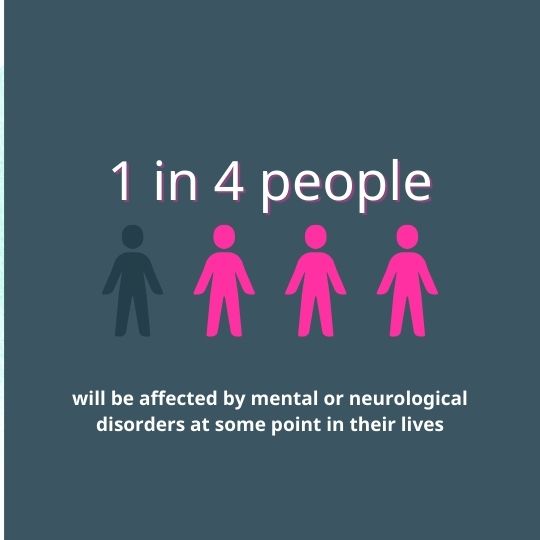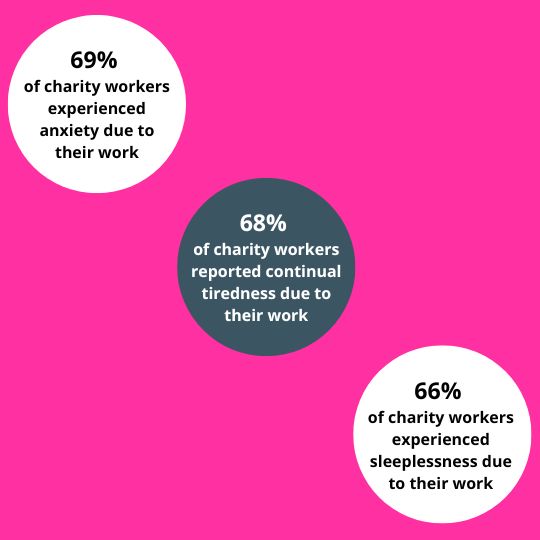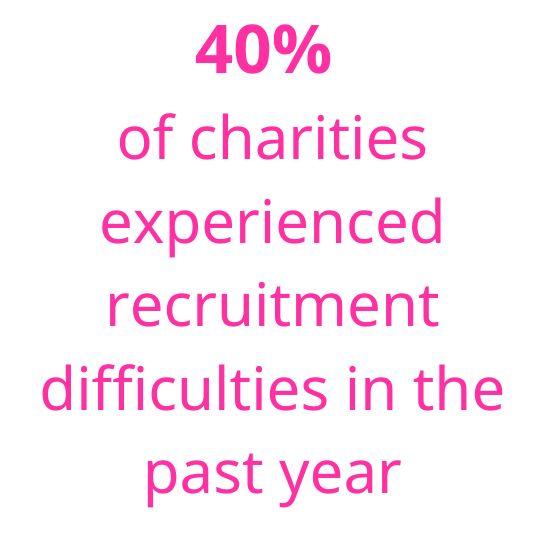Thursday 10 October is World Mental Health Day and this year’s theme is “It is Time to Prioritise Mental Health in the Workplace”, a call to action that resonates strongly with us at CFG.

According to the World Health Organisation (WHO), approximately 1 in 4 people will experience a mental health issue at some point in their lives. And whilst work can certainly be a protective factor for some people’s mental health, it can also contribute to poor mental health.
Mental health challenges, including depression and anxiety, are widespread in workplaces around the world. These issues can significantly impact employee productivity, attendance, and overall job performance. Left untreated, the global economic cost of mental health conditions is estimated by the WHO to be a staggering US$1 trillion annually.
For those of us working in the charity sector, this can be especially true. A recent survey of charitable organisations by Unite, found that 69% of charity workers experienced anxiety due to their work, while 68% reported continual tiredness and 66% sleeplessness.

Working on the frontline of charities and interacting directly with individuals experiencing ill-health, hardship, oppression or discrimination is emotionally taxing.
Witnessing suffering and not always having the ability to meet every need can also be stressful, and this can certainly have knock-on effects for organisations as a whole.
Protecting staff
The Charity Risk Barometer 2023 found that only 34% of charity leaders offered wellbeing policies, which was a decline from 52% in 2020.
Perhaps linked to this is that, according to the recent VCSE Sector Barometer, around 40% of charities experienced recruitment difficulties in the past year.

With that in mind, it is vital that charities do all they can to retain their existing staff and provide them with adequate support with their wellbeing.
Laura Millar, Head of HR at CFG, commented: “Charity staff and volunteers are really stretched. With a few exceptions, most charities are responding to an increase in demand for services while seeing income reducing, and this inevitably impacts those who work for these organisations.”
“It is therefore essential that we do what we can to support others within our organisations and the sector as a whole, and provide opportunities for staff to discuss their mental health and raise concerns if needed.”
Laura added: “The past few years have brought significant changes, and the cost of living crisis continues to impact our industry. It's more important than ever to prioritise the needs of our employees.”
At CFG, we realise that stress is easier to manage before it becomes a greater issue. Staff are encouraged to speak to their line manager if they feel that high stress levels are affecting their ability to do their work.
Additionally, all team members are encouraged to use Plumm Health which offers access to online therapists, courses, guided meditation and chat therapy.
Laura highlighted the crucial role of employee wellbeing in the success of our charity and the sector. “By fostering a supportive and healthy work environment, we're creating a space where our staff can thrive,” she said.
“Leaders in the charity sector have a crucial role to play in promoting mental health awareness and supporting their teams. By setting a positive example, encouraging open communication, and prioritising employee wellbeing, leaders can create a culture where mental health is valued and supported.”
Take action on World Mental Health Day
Plumm have put together a useful guide of some steps we can all take, as organisations and individuals, to help our own teams with their mental health.
- Talk about mental health: Breaking the silence around mental health is essential. Encourage open discussions about mental health in your workplace, home, or community. The more we talk about it, the less stigma remains.
- Share resources: Ensure that your workplace or community members have access to mental health resources, including Employee Assistance Programs (EAPs), therapy, or wellbeing courses. Offering mental health support in the workplace can reduce stress, increase productivity, and create a healthier environment.
- Practise self-care: Encourage yourself and others to take time for self-care activities, such as mindfulness, exercise or regular breaks during the workday. Self-care can improve mood, increase resilience, and reduce the risk of burnout.
- Promote mental health training: Providing mental health awareness training to managers and staff can help people better understand mental health issues, recognise signs of distress, and provide support to those in need.
- Advocate for change: Support policies and initiatives that promote access to mental health services, reduce stigma and improve mental health care infrastructure. Consider participating in mental health campaigns or advocating for mental health reforms.
As individuals and organisations, we all have a responsibility to care for our own and others’ mental health. By taking action, we can create a more compassionate and supportive world. This World Mental Health Day, let’s make mental health a priority and strive for a future where everyone can thrive!